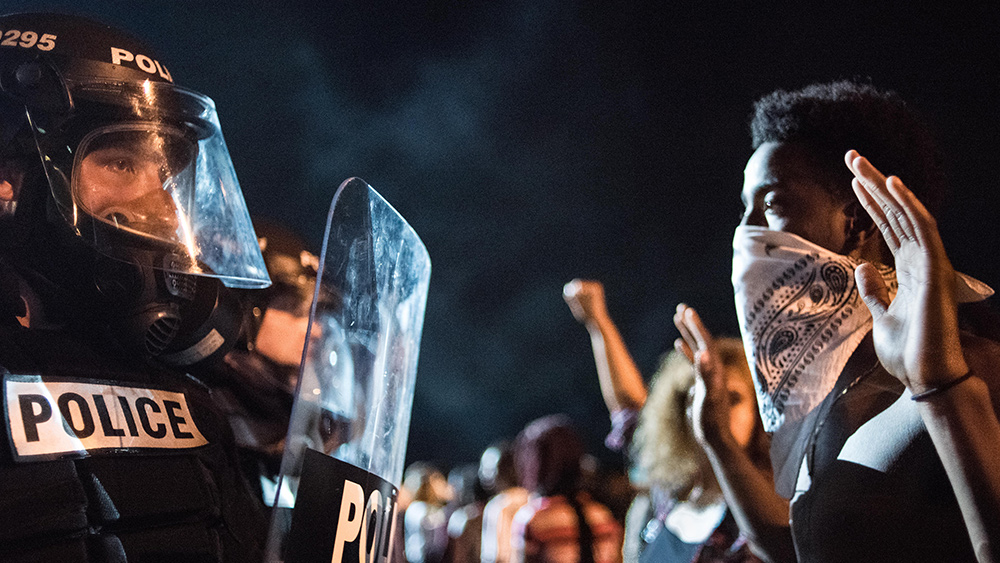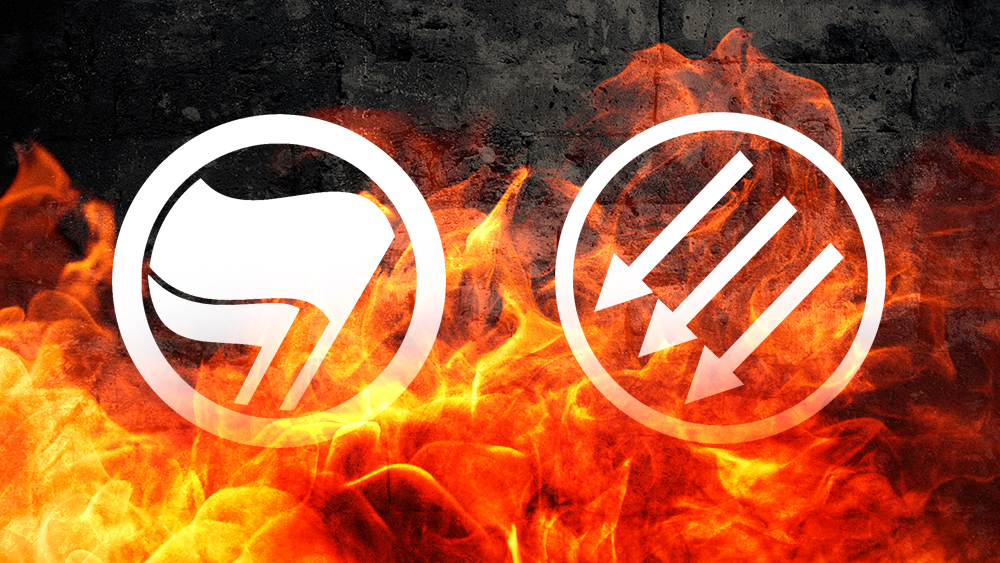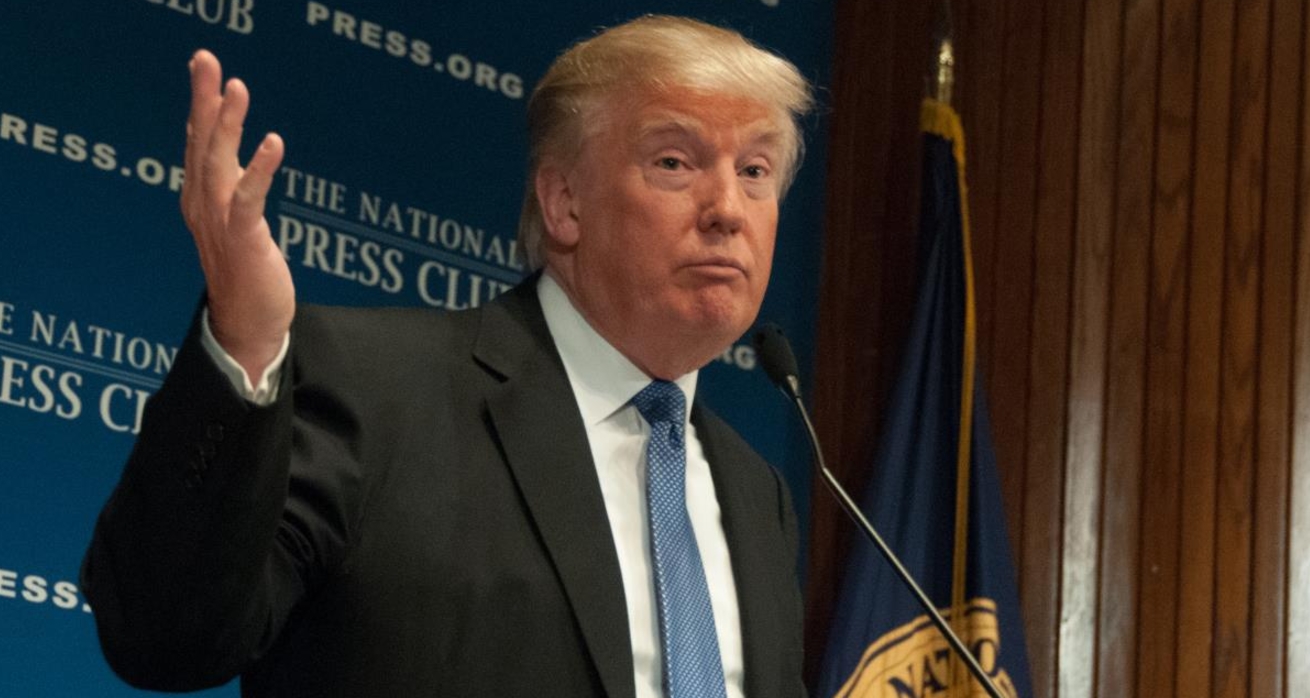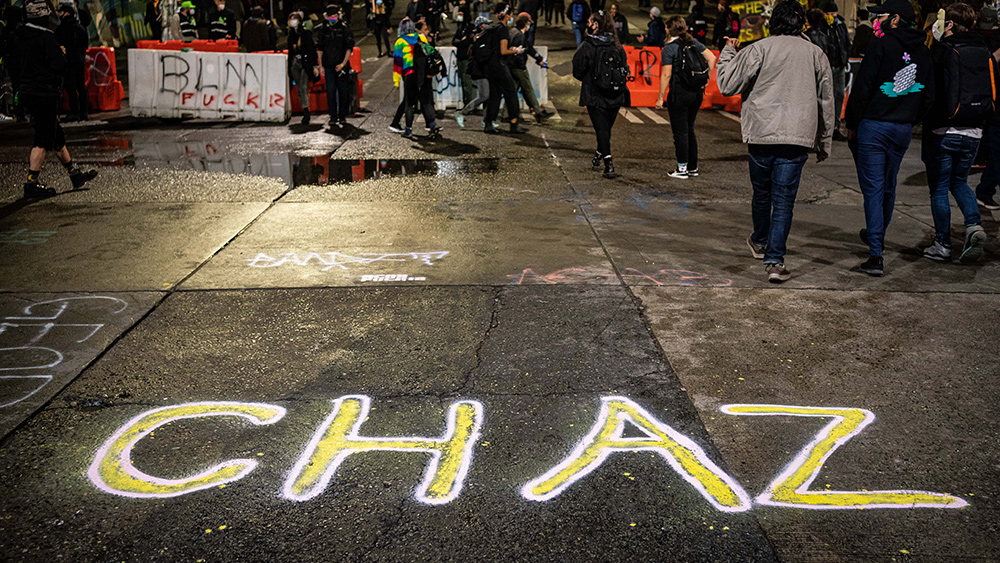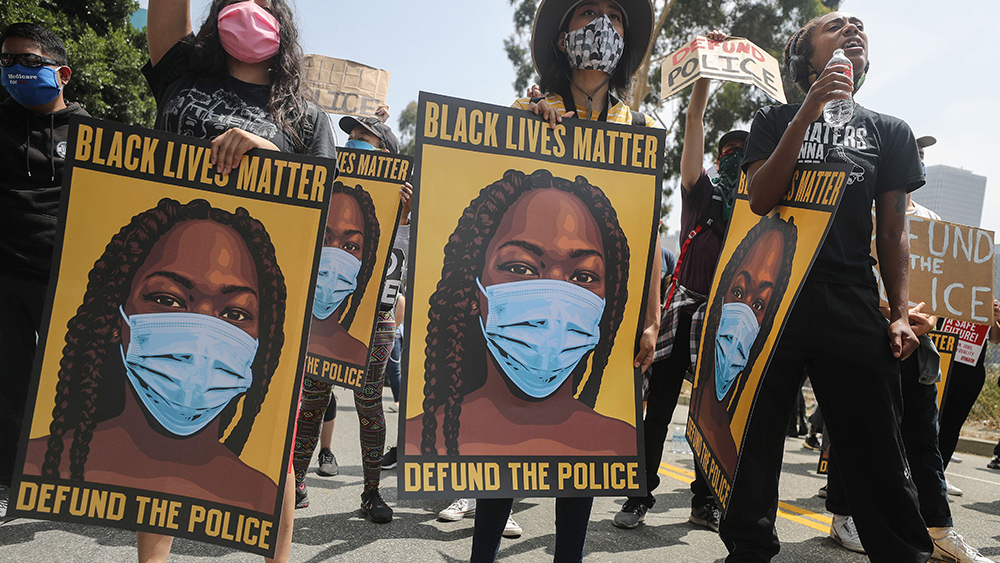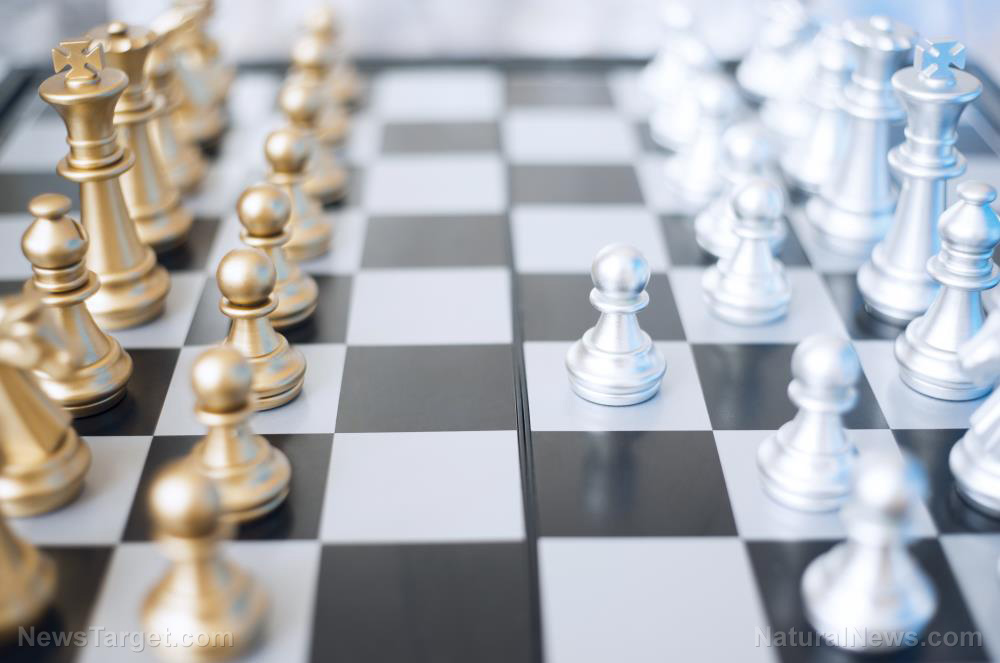Popular “woke” and “socially conscious” brands benefiting from Uyghur slave labor – report
07/19/2020 / By Michael Alexander
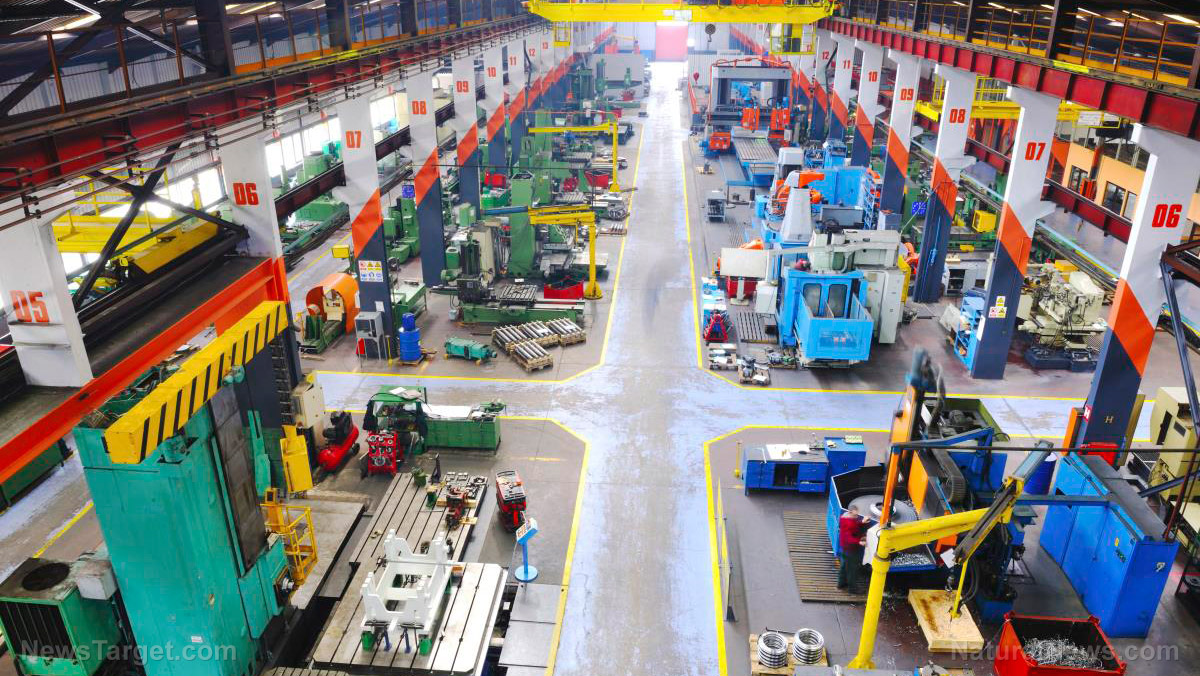
Your favorite “woke” and “socially conscious” brands may be profiting off the products of slave labor, a new report has revealed.
Think tank Australian Strategic Policy Institute (ASPI), in its report titled “Uyghurs For Sale,” noted that big, well-known global companies and brands such as Amazon, GAP, H&M, Nike, Apple, Samsung, Sony and Victoria’s Secret, among others, are part of a massive supply chain that uses Uyghur Muslims as “forced labor” in their factories in China.
Incidentally, the majority of the mentioned brands have positioned themselves as “ethical” and “progressive” entities aligned with social justice campaigns.
In their report, ASPI noted that ethnic minorities such as Xinjiang’s Uyghur Muslims, are often trafficked from their home provinces and brought to factories where they are forced to work.
“Between 2017 and 2019, we estimate that at least 80,000 Uyghurs were transferred out of Xinjiang and assigned to factories through labor transfer programs under a Central government policy known as ‘Xinjiang Aid’,” the Australian think tank said, adding that they were able to identify 27 factories that currently use Uyghur labor.
The factories in which these Uyghur Muslims are made to work, ASPI said, form a major chunk of the supply chain of big, global brands such as Nike. The popular shoe and sportswear brand, ASPI said, gets its shoes from Qingdao Taekwang Shoes Co. Ltd., which, as of January this year, has over 600 ethnic minority workers from Xinjiang – most of whom are Uyghur women.
Ironically, Nike released a campaign meant to “uplift” women just last year.
Another factory, Haoyuanpeng Clothing Manufacturing Co. Ltd., which was discovered to have “strategic partnerships” with global companies like the Italian-South Korean fashion label Fila, German sportswear companies Adidas and Puma, was also found to be a part of the “Xinjiang Aid” network and has Uyghur Muslims as part of its labor force.
Tech-related corporations were equally complicit in unethical labor practices, ASPI said, noting that O-Film Technology – a camera manufacturer that supplies tech giant Apple with parts for its world-famous line of smartphones – has Uyghur Muslims in its employ, again, as part of the Xinjiang Aid system. (Related: There’s blood on your phone: Tech giants linked to “slave labor” in Chinese factories.)
Apple, the ASPI report has uncovered, also has ties with Foxconn Technology, a Taiwanese company whose facilities in Zhengzhou also employ Uyghur workers.
Considered to be one of the biggest contract electronics manufacturers in the world, Foxconn’s Zhengzhou facility makes half of the world’s iPhones – a reputation that has since caused it to be dubbed by locals as “iPhone City.”
More than being a site for technological advancements, however, the company’s Zhengzhou factory, has been called out by the New York-based labor organization China Labor Watch for worker exploitation, with the company making its workers – including Uyghur Muslims – put in at least 100 overtime hours in a single month.
This inhumane treatment of its workers has since led to several cases of employees committing suicide.
Apple, on its website, claims to be a donor to the Equal Justice Initiative project, a non-profit organization that aims to challenge racial injustice.
China now a hotbed of modern slavery
China’s use of forced labor was first documented by human rights workers during the height of Deng Xiaoping’s wave of economic reforms.
According to a paper by Karine Leppillez of the University of Denver and the Society of Gender Professionals, Deng’s reforms led to the Communist party’s adoption of a doctrine called “reform through labor,” which promotes labor as a way to transform “dissidents” into people who can be of use to the state and help further its development.
In practice, however, that doctrine merely led to the creation of a vast network of prison labor camps known as Laogai across the country.
These camps, Leppillez said, have been used to suppress and indoctrinate petty criminals, political dissidents, religious adherents and others who are seen as threats to governmental and social stability.
The same thing continues to happen today, as per the Walk Free Foundation’s Global Slavery Index, which found that over 3.8 million people are living in conditions akin to modern slavery in China. This estimate by the foundation does not include figures on organ trafficking, however.
This correlates with the findings reported by ASPI.
In their report, ASPI noted that the current program that brings Uyghurs to the factories is disguised as the government’s way to “provide” Uyghurs and other minorities with training and employment.
China’s foreign ministry spokesman Zhao Lijian, in an earlier statement denouncing ASPI’s findings, even noted that the workers mentioned in the report are actually graduates of the country’s “vocational centers” – the new, Party-approved name for the country’s network of extrajudicial “re-education camps” in which Uyghur detainees are made to erase all traces of their cultural heritage and religion in preparation for their integration into the rest of the Han-dominated population.
“The workers in these factories are brought [to] and kept in dormitories after they finish their ‘re-education’ in the camps. In their workplace, they lead a harsh and segregated life. They are forbidden to practice religion and are required to compulsorily take Mandarin lessons. Most strikingly, local governments and private brokers are paid a price per head by the Xinjiang provincial government to organise the labor assignments,” the Australian think tank said.
The Trump administration, earlier this year, asked U.S. companies to exercise caution before doing business with Chinese suppliers that have been linked to human rights abuses, such as the forced labor of Uyghurs and other minorities in Xinjiang.
“The advisory will make businesses aware of the potential exposure in their supply chains to entities that engage in human rights abuses in Xinjiang – or elsewhere in China,” Secretary of State Mike Pompeo said in a statement, “and the associated reputational, economic, and legal risks of such involvement.”
Sources include:
Tagged Under: Amazon, Apple, Beijing, Big Tech, brands, business ethics, China, communism, Communist Party, corporations, enslaved, evil, forced labor, gap, Glitch, H&M, human rights, human rights abuses, human rights violations, modern-day slavery, Muslims, Nike, Samsung, slave labor, slavery, sony, tech giants, technology, Twisted, unethical, Uyghur
RECENT NEWS & ARTICLES
COPYRIGHT © 2017 LEFTCULT.COM
All content posted on this site is protected under Free Speech. LeftCult.com is not responsible for content written by contributing authors. The information on this site is provided for educational and entertainment purposes only. It is not intended as a substitute for professional advice of any kind. LeftCult.com assumes no responsibility for the use or misuse of this material. All trademarks, registered trademarks and service marks mentioned on this site are the property of their respective owners.




